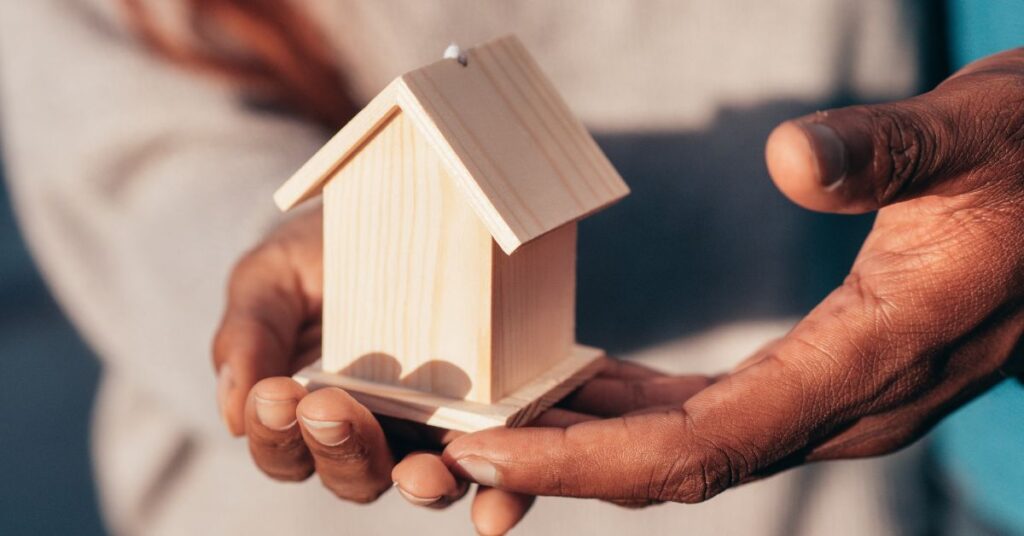Get Expert Financing
- Matched with investor-friendly lenders
- Fast pre-approvals-no W2s required
- Financing options fro rentals, BRRRR, STRs
- Scale your portfolio with confidence
You generally can’t use cash — as in physical cash — to make a down payment on a home. But there are workarounds, so don’t be worried.
It might seem unfair, but mortgage lenders operate by certain procedures designed to protect the integrity of their mortgage loans.
The problem with cash is that there is no solid way to track where it comes from. And because of certain requirements within the mortgage industry, cash doesn’t fit neatly within the guidelines.
While you can’t use cash itself, you can deposit cash into a checking or savings account, let it “season” for 60 days, then use the bank statements to verify the funds.
Lenders and banks will require a paper trail for any funds used for a down payment, usually with recent bank statements or a verification of deposit (VOD). The bank sends the VOD request directly to a financial institution to verify funds.
One of the questions that the VOD form asks for is an average balance on the account for the past two months. This helps the lender to make sure the current balance is about the same as the two-month average. If bank statements are used to verify funds, lenders will require statements covering the most recent two-month period.
You can season cash by depositing it into an account as soon as possible – preferably 60-90 days prior to applying for a home loan.
If the 60 days of bank statements do not show a large deposit, the cash is “seasoned” and considered legitimate by the lender.
If the statements show the large deposit, even if it was more than 60 days ago, the lender may still request documentation.
That means you would have to track down paperwork proving where the cash came from, a potentially difficult task.
Because of this, you should have your down payment money sitting quietly in a bank account for at least 60 days before applying for a mortgage.
Again though, letting your lender know about your situation early enough in the homebuying process, could help you avoid any issues.

When cash is deposited into your account, whether it be an actual cash deposit, check, or money transfer, your lender will want to verify where it came from.
Things like your paycheck, tax refund, social security or retirement payments are usually easy for lenders to verify.
But non-typical income sources will need to be verified to ensure that they’re legal and not loaned to you. A lender will want to see that you have a consistent income and you aren’t relying on loans or other inconsistent cash to meet your mortgage requirements.
Examples of what counts as a cash deposit include:
Different lenders will have different requirements for how to verify whether these cash deposits are legitimate and legal.
Related: ITIN Loans for Foreign Nationals and Home Buyers With No SSN
Common examples of verification include:
In any case, if you have any unique or non-traditional incomes used for your mortgage qualification, it’s best to be transparent with your lender upfront.

Some loans require no down payment.
For example, a USDA loan has no down payment requirement and is lenient about credit scores. You just have to buy a home in a rural or suburban area. Most neighborhoods across the U.S. are eligible.
You still have to come up with closing costs, but you can “season” cash in a bank account for 60 days to pay for these costs.
See if you’re eligible for a USDA loan.While it may seem unfair, there are many legitimate reasons that lenders are strict with their down payment requirements.
Let’s look at a few reasons they’re weary of cash deposits use for a down payment.
Conventional mortgages usually require that you have a certain minimum amount put toward the purchase of a home. This is particularly true any time that the total down payment on the new home is less than 20%.
That minimum requirement is usually somewhere between 3% and 5% of the purchase price.
Conventional mortgage rules hold that at least that amount of the down payment must come from your own funds. That contribution for the down payment represents your actual equity in the home, apart from any gifts or secondary financing that you might obtain to cover the rest of the down payment.
Conventional mortgages have this “Own Funds” requirement because lending experience has shown that a homeowner is much less likely to default on a mortgage if they have an actual equity stake in the property.
For this reason, lenders will look for a paper trail documenting both the existence and the source of your down payment funds. Cash down payments have no way to be traced or verified.
Some loan programs require no down payment. See if you qualify.Lenders want to ensure that you aren’t trying to pass off someone else’s money as your own. A lender wouldn’t know if you borrowed that money and lied or withheld that information from them, and that’s what they’re trying to avoid.
“Sleeping seconds” is another situation that lenders are on the lookout for. This is when an applicant tries to pass of money they borrowed as their own. But after the closing, a new lien is recorded on the property in the form of a second mortgage.
The lender is suddenly faced with a higher risk loan than they anticipated. For example, if the lender provides you with 90% of the purchase price as a new first mortgage, but the second mortgage for 10% of the purchase price is recorded shortly after closing, you’ve completed a 0% down payment purchase. That’s a riskier loan than one in which the borrower had 10% down.
And once again, the borrower will not meet the “Own Funds” requirement if the cash down payment was a loan.
Borrowed money is a debt that needs to be repaid and affects your debt-to-income ratio. Your whole mortgage would need to be reevaluated if you accept a personal loan during the mortgage application process.
You likely can’t control if and when you get gifts. But If you receive a cash gift close to applying for your mortgage, a lender may require up to three months of bank statements from the gift-giver showing where the money came from, and they may even require the gift-giver to undergo a credit check.
Another common requirement is a gift letter from the person who lent or gifted the money to you. Let’s consider a homebuyer who does a 95% first mortgage, and puts 5% down. If the cash-on-hand is the result of a gift from a friend or family member, the homebuyer has no equity stake in the property.
Different loan products have exemptions to this rule though.
FHA Loans, for example, allow friends, family or others to gift you money for a down payment. The FHA is not necessarily concerned with where the funds come from as long as it’s not from someone who has a financial interest in the sale of the property, such as the seller, your real estate agent or your broker.
The donor could also be responsible for taxes on the gift if it exceeds the exemption limit in a single year.
This is primarily what lenders are concerned with when they verify your income and cash deposits.
Technically speaking mortgage lenders are not in the business of investigating illegal sources of cash. However, they are on the lookout to not accept money from such sources. And unfortunately, physical cash does have the potential to be the result of illegal activity.
For this reason, title companies aren’t going to accept (physical) cash as funds at the close.
The USA Patriot Act was passed after the September 11 terrorist attacks. All financial institutions are required to observe this. The law specifically requires all appropriate elements of the financial services industry to report potential money laundering. That includes the use of physical cash in the purchase of major assets, such as real estate.
The law effectively prohibits lenders from accepting physical cash as a source of funds for down payments beyond a very minimal level.
With increased safeguards against money laundering, realtors are likely to be suspicious if you come to the table with a cash down payment.
In most cases, you can pay a down payment with a personal check, cashier’s check, credit card, or electronic payment.
You wire funds to the escrow company at the end of the loan process. The escrow company will give you a final dollar amount to wire from your bank to their bank (another reason your cash has to be deposited into a bank account). The total includes:
For example, if your down payment is $10,000 and closing costs are $5,200, you would wire $15,200 to escrow during the final days of the loan process.
The down payment is the portion of the home price that you pay on your own instead of borrowing from your lender.
Down payments give you a stake in the home and help show a lender that you will keep making payments on your loan instead of walking away.
A track record of your savings is also helpful for approval.
The bigger the down payment, the more you can minimize borrowing. In other words, the more you pay for the down payment, the smaller the loan and the lower the interest rate that you’re likely to get.
That means you pay less in interest over the course of the loan, and you’ll likely have a lower monthly payment than you would with a small down payment.
It’s a pretty complicated process that can seem intrusive. But it’s one way that lenders make sure down payment money from a homebuyer is what it is claimed to be. It also helps to ensure that you have a consistent income to sustain your loan. If a down payment is physical cash, the lender will have no ability to make that determination.
So if you’re still using a shoe box as a savings account, and you’d like to use it for a down payment on a house, you might want to get it in the bank since you now understand why you can’t use cash for a down payment.
See if you’re eligible to buy a home now.Our advice is based on experience in the mortgage industry and we are dedicated to helping you achieve your goal of owning a home. We may receive compensation from partner banks when you view mortgage rates listed on our website.

